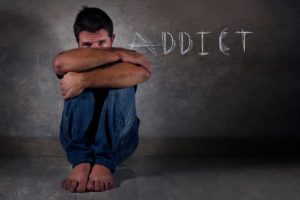Alcoholism is often considered the most dangerous drug in the world, as it is not only readily available to a consumer, but its use if often accepted in many different cultures and societies. It is not only dangerous because of this reason, however, as its side effects can impact a user’s personal relationships with others, including their friends, family and co-workers.
The Effects of Alcohol on Relationships
Relationships serve as an incredibly vital aspect in an individual’s life, as they not only provide him or her with support, encouragement and companionship, but they also contribute to the development of the building blocks of character, such as trust, honesty and compassion. When alcohol is present, however, these relationship benefits often fall to the wayside while more destructive effects begin making their way between a user and his or her relationships. Some of the many areas where alcohol can negatively impact relationships can include:
- Trust – Trust is often the foundation for a solid relationship, as it allows two people to feel as though they have a counterpart to rely on and confide in. When one of these two is abusing alcohol, trust can become nearly impossible, as a user becomes preoccupied with his or her drug use to a point where they are no longer able to live up to either physical or emotional expectations of their loved one.
- Reliability – As a user’s alcoholism grows worse, his or her ability to remain reliable to others begins to get threatened, as he or she is becoming more concerned with their use than any other responsibilities that he or she might have to another human being. This can quickly build resentment in their loved ones to a point where they estrange themselves from the user.
- Communication – Communication is necessary in any type of relationship, however primarily important in closer relationships. Drinking can cause an individual to forget conversations, cause arguments or become violent towards a loved one. This can impact their ability to communicate on deeper levels, which generally perpetuates a downward spiral that can end the relationship.
The presence of alcohol can not only cause breakdowns in the areas of trust, reliability and communication, but can also cause long term estrangement, anger, frustration and sadness for both parties involved.
How Treatment Can Help
Getting help for alcoholism can greatly impact a user’s relationship with others, as it will not only provide them with insight on how their alcoholism has affected their loved ones, but will also provide them with an opportunity to learn how to prevent alcoholism from impacting future relationships. Not only can a user obtain these relationship skills, but his or her loved ones who made it through the process with them can also work on restoring a damaged relationship with their learned efforts as well.
Author
-

President, CEO & Founder at Northbound Treatment Network
Paul Alexander is the CEO, President & Founder of Northbound Treatment Network in Newport Beach, California. He believes wholeheartedly in transformational leadership, organizational health and effective, fully integrated substance use disorder and mental health treatment. With over 27 years of experience in behavioral healthcare, Paul has extensive knowledge of “in vivo” treatment modalities, clinical development, operations, strategy, marketing and financial planning. He has been widely recognized for his development of collegiate-based residential treatment programs for students in recovery and authored a research study at The University of California confirming this modality’s effectiveness.
Paul’s comprehensive professional experience, willingness to innovate, and emphasis on organizational health are vital factors in Northbound’s continued success. Paul received his Certified Addiction Treatment Specialist training at Saddleback College in Mission Viejo, CA, and was awarded Outstanding Alumni Service Award in 2002. Paul holds a Bachelor of Arts degree in Criminology, Law and Society, Summa Cum Laude, from University of California, Irvine, and a Juris Doctorate degree from Loyola Law School of Los Angeles. Paul currently serves on The National Association of Addiction Treatment Providers (NAATP) board. In addition, he serves on The Family Recovery Foundation board and The CarePossible board in Orange County; both organizations are committed to raising funds for family recovery and treatment for former military personnel. Paul is in recovery himself and lives in Orange County with his wife Silvana and his two young sons, Noah and Dean.










